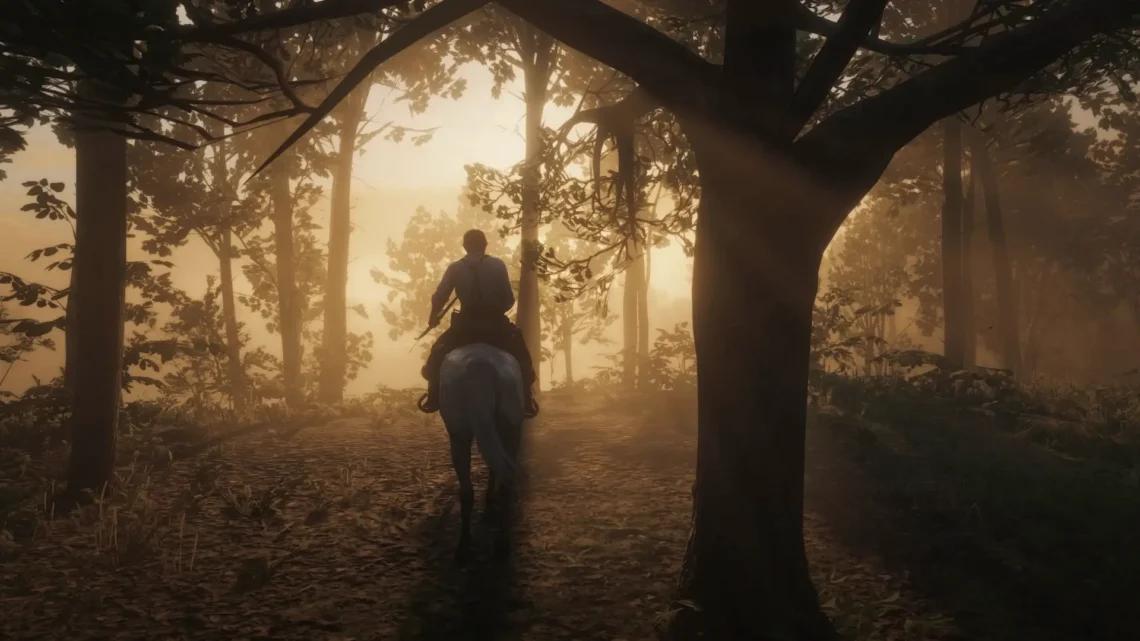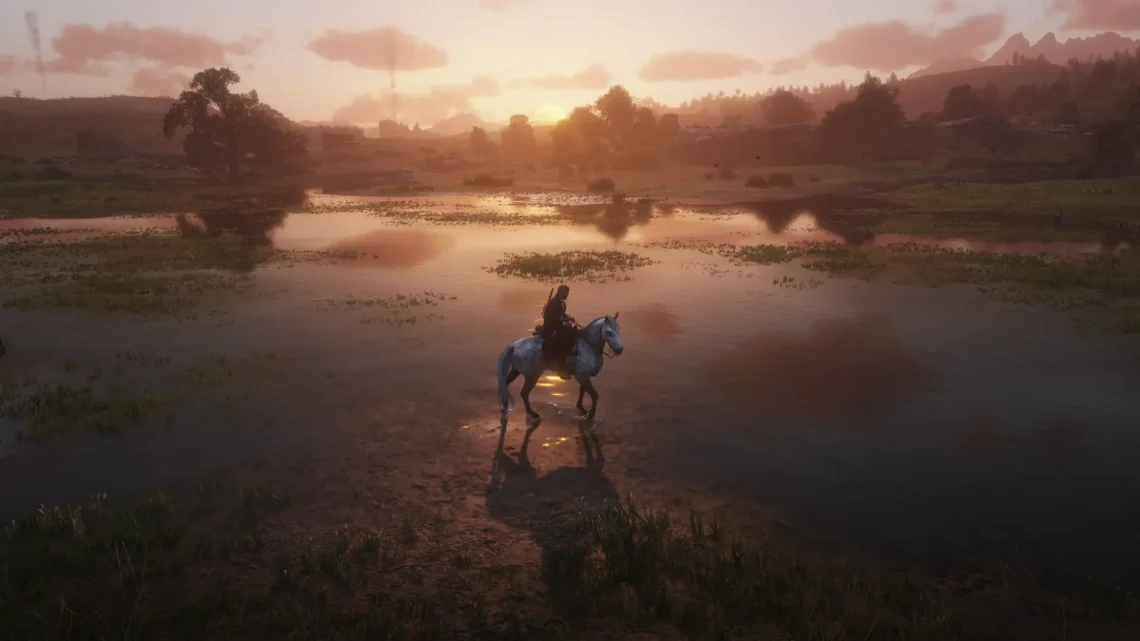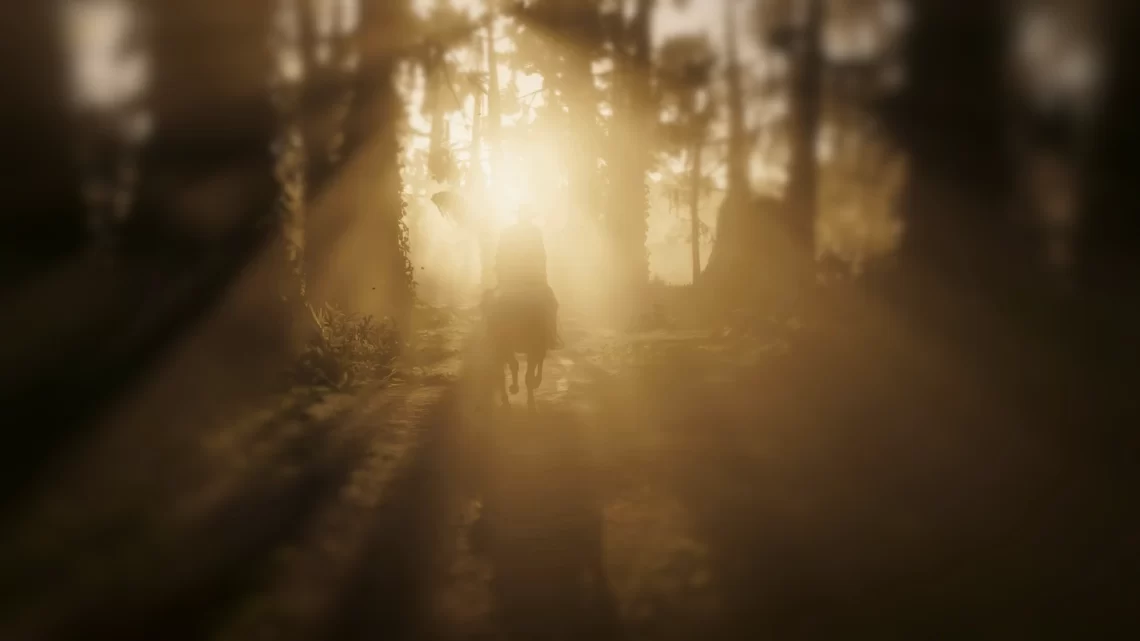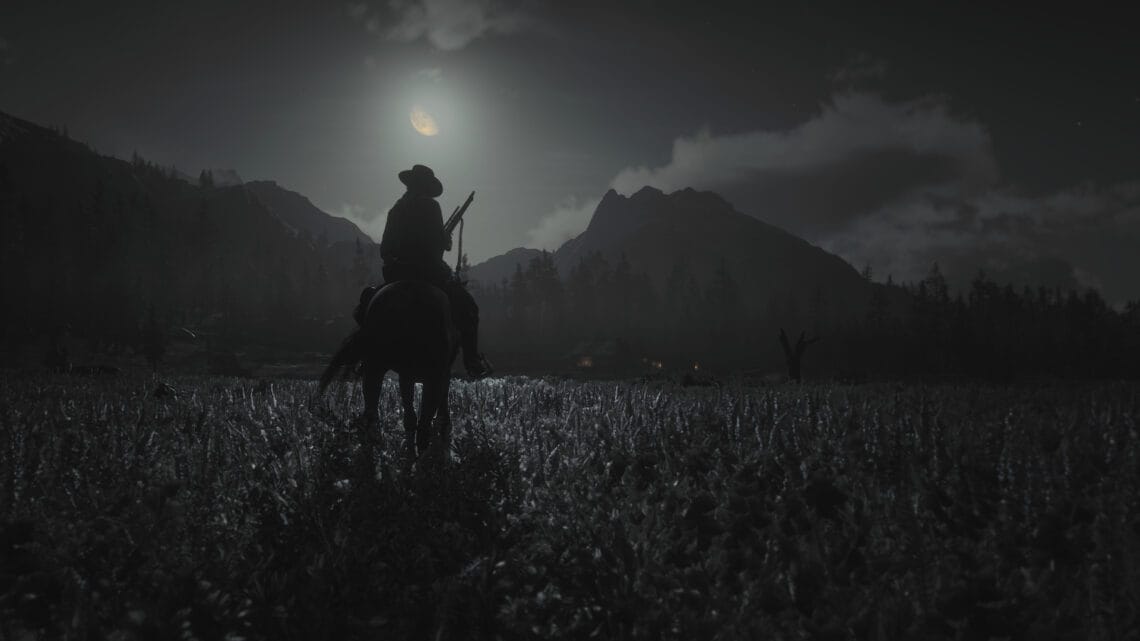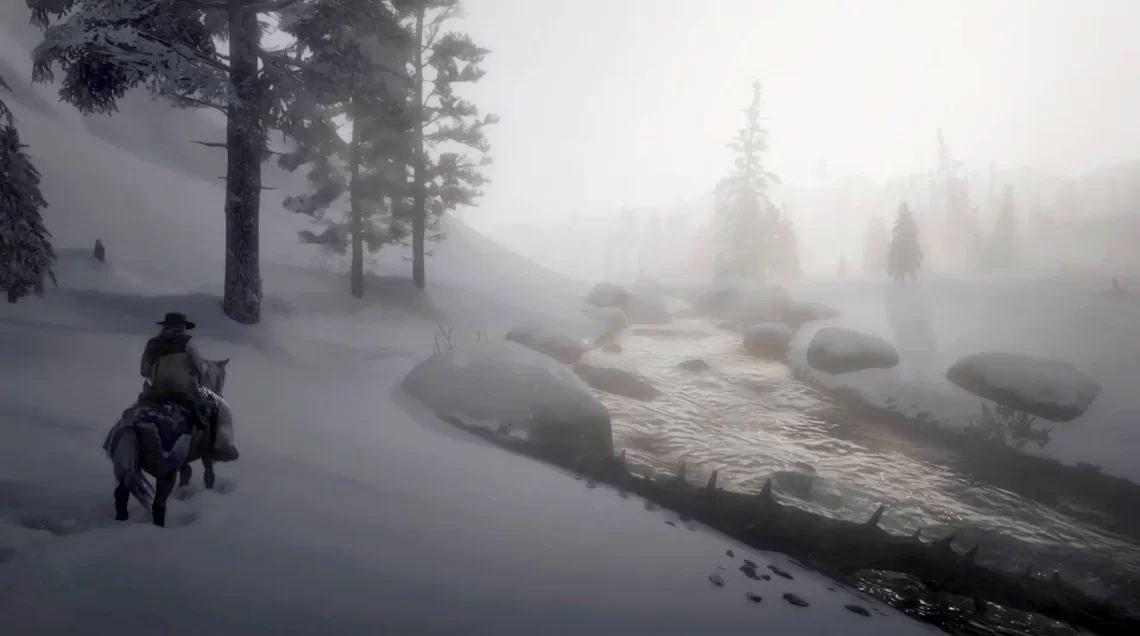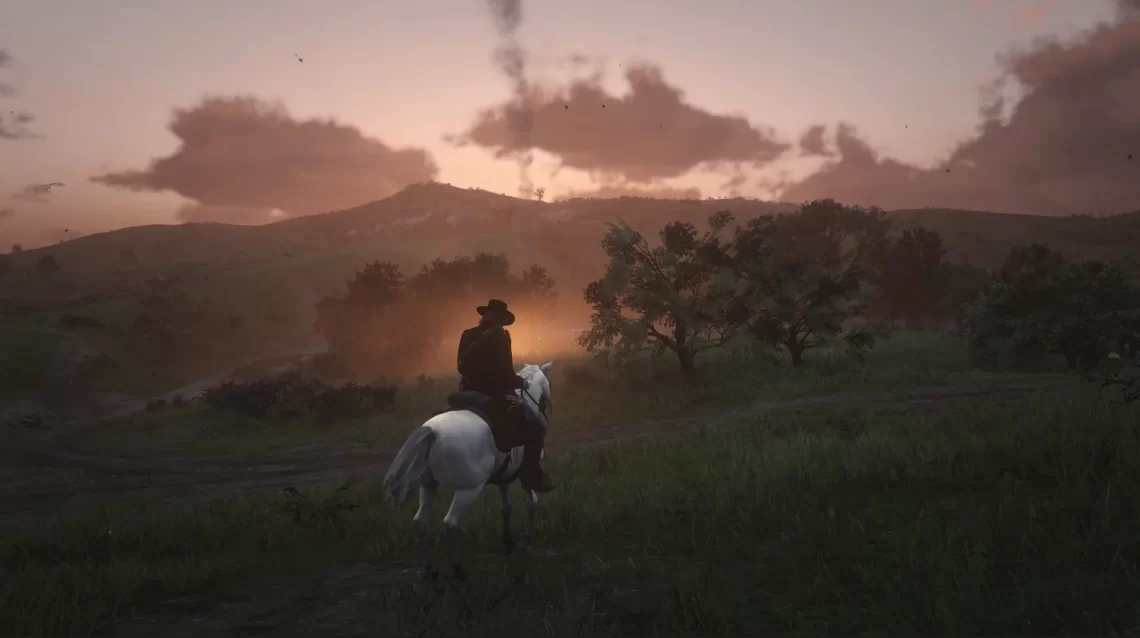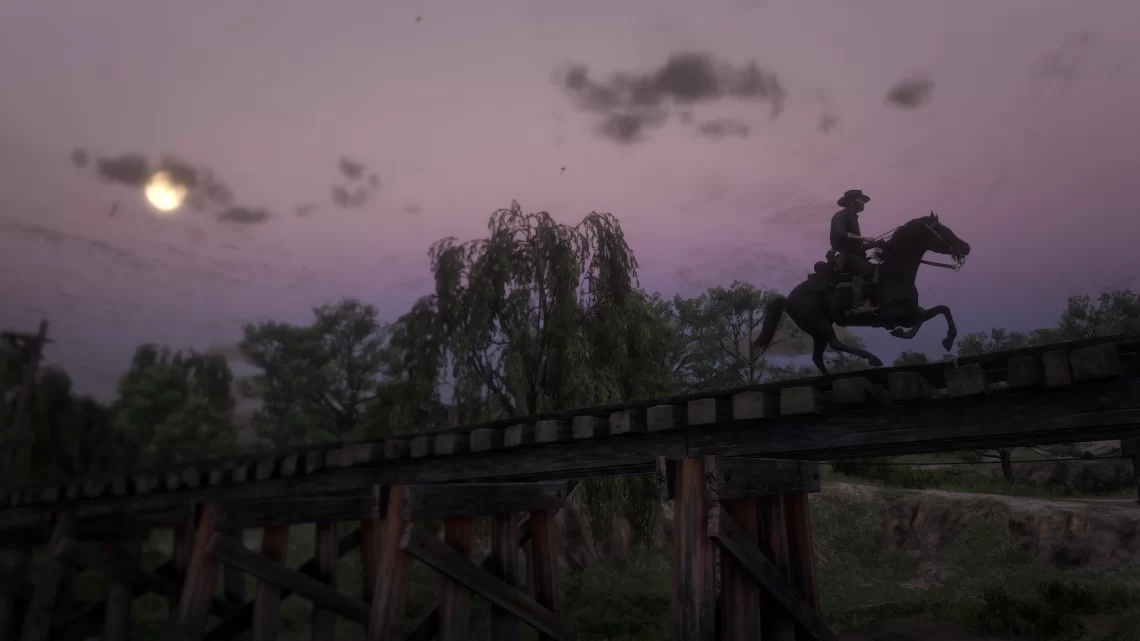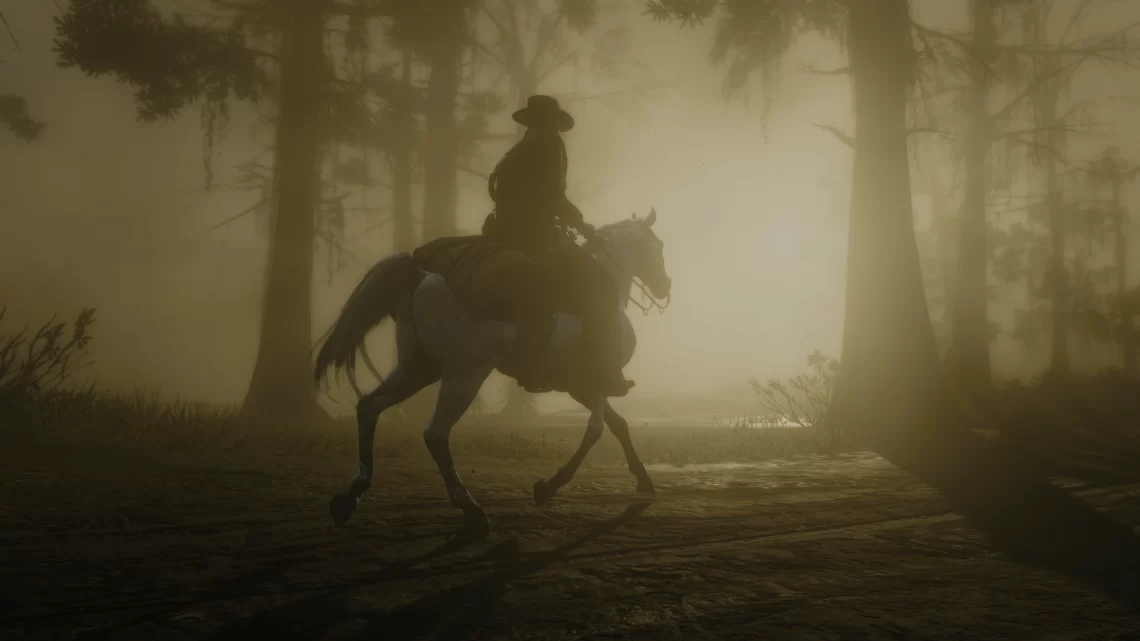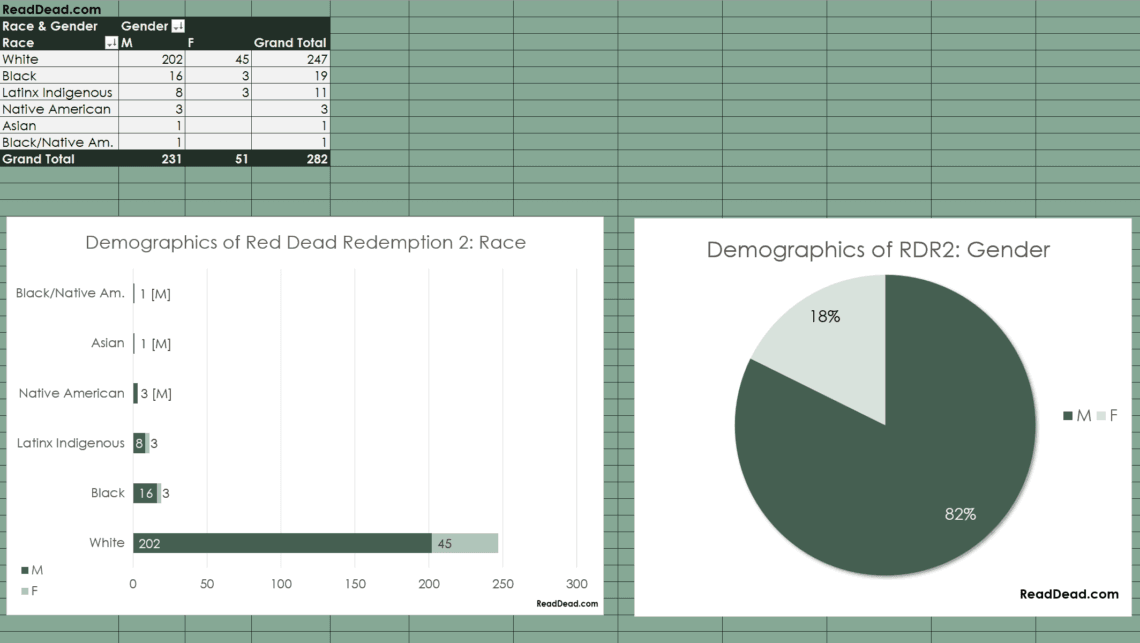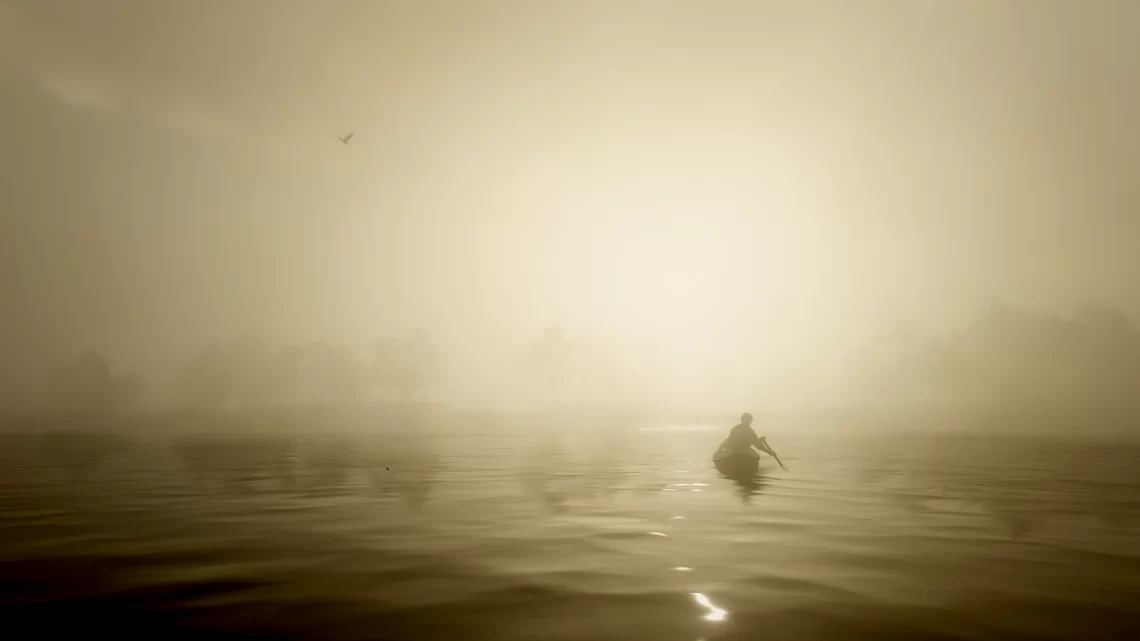Red Dead Redemption 2 is a paradox: despite justifiably being called one of the greatest games ever made, as a work of narrative art, it falls short of greatness. In aspects — the standout performances, the rendition of characters’ facial expressions, the golden choruses of the sunsets — it is superb. However, despite the story's powerful effects, RDR2's reputation as a superlative work is undeserved. Some of its formal problems are, perhaps, inevitable in a narrative form as nascent as the video game. Plot holes break the fabric of the story here and there.
More allusions to Oakley Hall's Warlock in RDR2: horses, events, dialog, and more.
We’re nearing the end of the literary works that Rockstar used to create RDR2. I want to close with an essay, so I’ll be publishing that two weeks from now. After that, I'll be sharing more of my research into the game's historical and cinematic influences.
Warlock — an 1958 Western by American novelist Oakley Hall — influenced Red Dead Redemption 2 deeply. Its complex plot is loosely based on iconic elements of the incidents now known as the Gunfight at the O.K. Corral and the Johnson County War. Like RDR2 itself, it reimagines and reworks its source material. Tombstone, Arizona, becomes Warlock, a frontier town plagued by random acts of violence: a group of men associated with local rancher Abe McQuown shoot the place up, rustle cattle, and rob stagecoaches. Because the state governor, General Peach, is senile, he hasn't issued Warlock a town patent, which means the townspeople have no authority to hire a…
Butcher’s Crossing is an 1960 novel by John Williams about a young man named (hilariously) William Andrews, who leaves Harvard in the 1870s to go West and experience the parts of the country untouched by European colonizers. In part, he’s inspired to do so by Ralph Waldo Emerson, the most prominent figure of the Transcendentalist movement. Another leader in the literary movement, Henry David Thoreau, is part of the basis for the character Evelyn Miller.
The traces of Cormac McCarthy's Blood Meridian that appear in RDR2 are subtler than Rockstar's usual bold and underlined references. The novel's impact on Red Dead Redemption was second only to that of Sam Peckinpah's The Wild Bunch. In contrast, Blood Meridian makes itself felt throughout RDR2 in the horrific violence, the bleakness, and the bitter irony, but most of the similarities aren’t specific enough to claim them as absolute allusions. A few are certain:
How the enemies and allies of John Sontag and Chris Evans inspired characters in RDR2.
When considering race and anti-Black racism, Black perspectives are the most vital. That said, too often, we act as though being white is an automatic, default, or neutral position instead of considering the precise ways in which racism distorts white perspectives and beliefs. RDR2's portrayal of the white perspective is unconsidered and obscures historical realities. Arthur's demonstrable ignorance of white peoples’ prevalent attitudes in “Preaching Forgiveness as He Went” and “No Good Deed” denies the realities of the time and is totally unbelievable: in no way were white supremacist acts of violence, let alone beliefs, confined to the South.
I compiled this demographic data about the characters in RDR2 for my own use, and I'm making it available for anyone who may find it helpful in studying, writing, or thinking about the game. Please consult the README for more info on the resource.
An unfortunate feature of American storytelling is the “anti-racist” text that is, itself, racist. These pieces ostensibly speak against racism, but the authors haven't done the difficult work of confronting their own false and negative beliefs about the people they're writing about. As a result, they uphold or create harmful stereotypes, like the white savior or the Uncle Tom. One such text is Quentin Tarantino's film Django Unchained, which probably gave RDR2's writing team the idea for a Western set in the South. Having chosen that questionable inspiration, they chose another with similar flaws: Adventures of Huckleberry Finn by Mark Twain.
